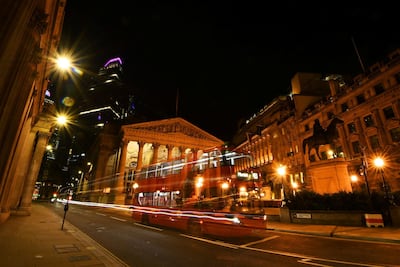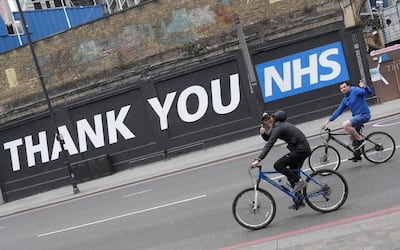London is to close whole areas of prime districts to cars and vans as it encourages residents to walk and cycle safely when the coronavirus lockdown measures are eased, Mayor Sadiq Khan announced on Friday.
A statement from the mayor’s office said the move was necessary “to enable safe social distancing on public transport in London as lockdown restrictions are eased, and will help support increased walking and cycling and improve the city’s air quality.”
The "Streetspace" announcement will see one of the largest car-free campaigns anywhere in the world launched immediately. Some streets of the British capital will be converted into walking or cycling only, while other parts of central London will be restricted to all traffic apart from buses.

Streets between London Bridge and Shoreditch, Euston and Waterloo and Old Street and Holborn may be limited to buses, the statement said. Waterloo Bridge and London Bridge may be restricted to people walking, cycling and buses only, with pavements widened to allow safe travel between busy railway stations and their workplaces.
London’s transport body, Transport for London (TfL), is looking into providing Zero Emission Capable taxis with access to both these bridges, and other areas where traffic is restricted.
More pressure on motorists came from a rise in transit fees in the city centre. London’s congestion charge is set to rise by 30 per cent from June 22, from £11.50 (Dh51.20) to £15. But there will be an exception for NHS and carehome staff, who will get reimbursed by TfL to support them during the pandemic.
“I ask that Londoners do not use public transport unless it is absolutely unavoidable – it must be a last resort. If you can work from home you should continue to do so. We should all spend more of our leisure time in our local areas too,” Sadiq Khan, the Mayor of London, said in a statement.
“We will need many more Londoners to walk and cycle to make this work. That’s why these plans will transform parts of central London to create one of the largest car-free areas in any capital city in the world.
Transport Secretary Grant Shapps said on Friday morning that the government had agreed a £1.6 billion bailout deal with Transport for London (TfL) to keep vital public transport running and return it to full capacity while adhering to social distancing restrictions. But the government warned that London transport fares will have to rise.
“We still need people to WALK & CYCLE instead, work from HOME and avoid the RUSH HOUR, but this deal will bring more services,” Mr Shapps said on Twitter.
At the same time Prime Minister Boris Johnson is looking to use the pandemic to launch a nationwide campaign to fight obesity through cycling. Following his spell in hospital recovering from Covid-19, Mr Johnson is understood to partly blame giving up cycling when he became PM last year for weight gain that made him more vulnerable to the pandemic.
Research indicates that being obese doubles the risk of needing hospital treatment for coronavirus and around one in three British adults are clinically obese – having a body mass index above 30 – one of the highest proportions in the world.
Mr Johnson was an avid cyclist when he was Mayor of London, and he pushed for some of the city’s most ambitious cycling infrastructure projects.
Many members of the public are already using the change of circumstances around the pandemic to change their cycling habits.
Caroline Poulter, 37, who is not currently working, got her bike out of storage when lockdown was imposed and used it for exercise.
"I used to take my bike [just] to the shops but now I walk everywhere. I'm very much a fair weather cyclist, so I don't know if I could do a commute every day but it's certainly a better prospect than public transport with the virus going around," she told The National.
Maurice Burton, who owns a cycling shop in Catford, South London, said in his 32 years owning the shop, he has never witnessed an uptick in sales “anything like this”.
“Yesterday, we sold 26 bikes. One of those bikes is being delivered to Sheffield, which is virtually unheard of. It means they couldn't find a single version of what is not a usual bike closer to them,” he said.

Mr Burton said that much of the sales were to people new to cycling who need to find a new way to commute into the city.
“Usually, we'd expect to sell around four bikes in a day. Before this, I was selling 60 bikes in a month, but I easily do that in under a week now. Pretty much the only stock we have left is £1200 and upwards. Anything around the standard £350-£500 mark sold out weeks ago.














